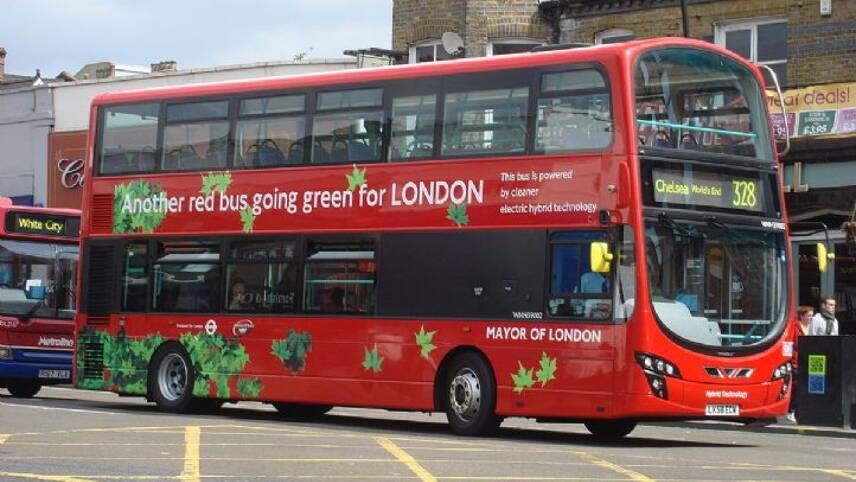Register for free and continue reading
Join our growing army of changemakers and get unlimited access to our premium content

Friends of the Earth is calling for free bus rides to be offered to all UK-based under-30s this year
New annual greenhouse gas emissions (GHG) data, released today (5 February), have confirmed that transport is still the UK’s highest-emitting sector, after it overtook power generation for the first time since records began in 2016.
The preliminary figures, released by the Office for National Statistics (ONS), state that transport accounted for more than one-quarter (26%) of the UK’s overall carbon footprint in 2017. In total, emissions from this sector have only dropped by 2% since 1990, the figures confirm.
The pace of overall decarbonisation, meanwhile, has remained steady, with nationwide emissions from all sectors having undergone a 5% year-on-year decrease between 2015 and 2016.
However, green campaign groups have been quick to point out that this progress has been driven largely by the power sector, as the shift away from coal power continues to gather pace.
Having accounted for more than 65% of the nation’s carbon footprint in 1990, power generation is now responsible for just one-quarter of Britain’s GHG footprint, according to the ONS. During this same time period, transport’s share has dropped from 28% to 26%.
All aboard
According to Friends of the Earth, a lack of progress in the transport sector to date has largely been driven by a slow transition away from petrol and diesel cars.
In light of the ONS figures, the green group is now lobbying for the UK Government and local authorities to introduce free bus travel, as a way to incentivise the public to reduce their reliance on private cars before the 2040 ban on new petrol and diesel sales comes into force.
A new Friends of the Earth report, released this week, claims that at least one-fifth of car journeys made within the UK annually will need to be undertaken using public transport by 2021 if the nation is to meet its fourth and fifth carbon budgets, the latter of which runs from 2028-2032.
In order to drive this change, the organisation recommends in its report that free bus travel is offered to all under-30s “as soon as possible”, with the scheme widening in the years leading up to 2032.
Such a move would cost around £3bn annually, but would enable local authorities to spend less on roads, according to Friends of the Earth. The body notes that more than 100 cities across the world are now offering free bus travel.
“There is no reason why this can’t be the year that national and local government transforms transport and travel – we need to do this to get to grips with a changing climate and meet our Paris Agreement commitments to limit global temperature rises,” Friends of the Earth’s head of research Mike Childs said.
“As a bonus, it will make us healthier and happier too.”
Explaining why Friends of the Earth chose to focus on buses, Childs explained that Brits currently make three times more journeys by bus than by train, and that bus prices nationwide had risen by 75% since 2009. Additionally, those living in new housing developments on the outskirts of towns and cities are more likely to be served by bus stops than a rail station.
Moreover, several of the UK’s cities have begun to make their bus fleets more sustainable in recent times. London, for example, has placed a string of orders for electric and hydrogen-electric buses over the past two years, as City Hall strives to create Europe’s largest zero-emission bus fleet.
Sarah George


Please login or Register to leave a comment.